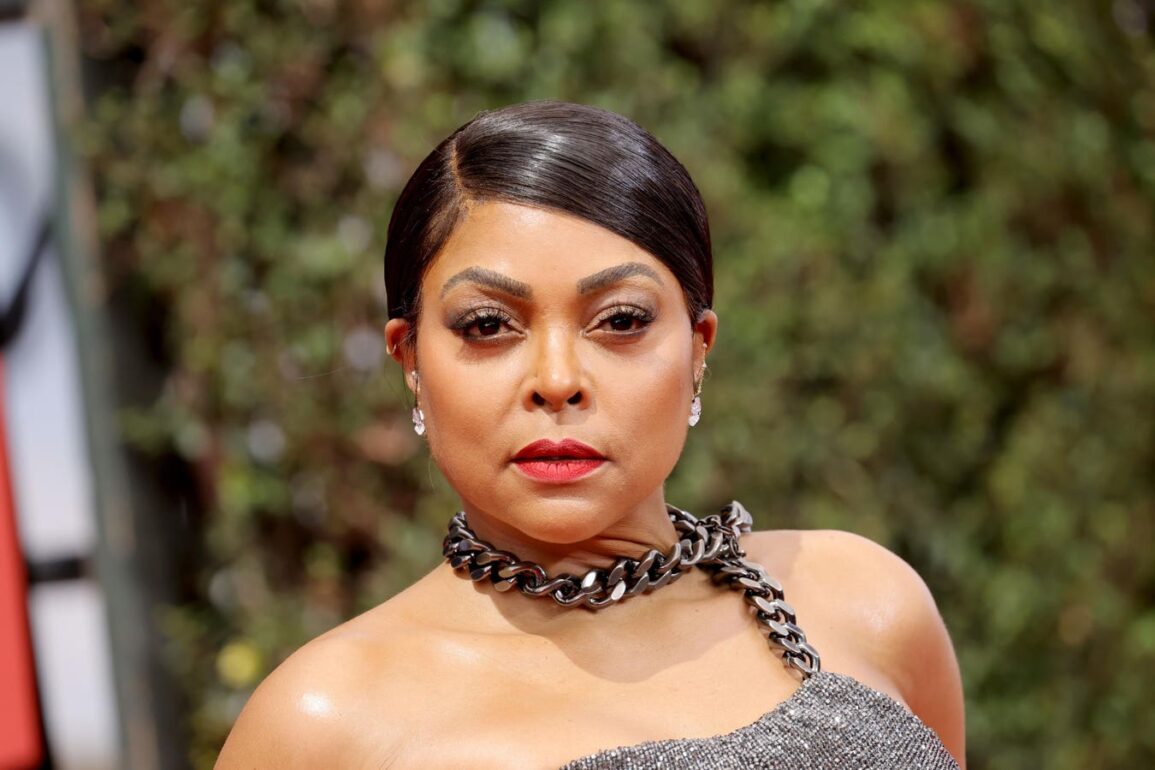
Taraji P. Henson is a continual voice for mental health advocacy in the Black community.
Taraji P. Henson has once again partnered with BET Media Group for the 2024 Can We Talk? Symposium, on behalf of the Boris Lawrence Henson Foundation (BLHF). Taking place at the Gaylord National Resort & Convention Center in Washington D.C. on May 30 and 31, this two-day initiative aims to address the negative stigma around mental health in the Black community through mixers, panels, breakout sessions, and celebrations.
“BET Media Group is honored to continue our partnership with the Boris Lawrence Henson Foundation for the Can We Talk? Symposium,” said Tiyale Hayes, Executive Vice President of Insights and Multiplatform Analytics at BET Media Group, in a statement. “Together, we remain steadfast in our commitment to breaking the silence and stigma surrounding mental health in the Black community and providing accessible resources and support through The Joy Challenge. This continued partnership reflects our shared dedication to creating a culture of mental wellness and empowerment.”
Launched last spring, BET and BLHF’s One Million Hours Joy Challenge plans to deliver 1 million hours of free mental health services to the Black community. To date, more than 150,000 hours of free mental health services have been provided. The challenge reveals an undeniable reality—the glaring communal ailment of inaccessible mental health services.
The initiative purposefully provides free services to a broad spectrum of Black communities, including HBCU campuses, the entertainment industry, and the sports field.
Attendees of the Can We Talk? Symposium, particularly mental health professionals and advocates, will have the opportunity to learn, evolve, and network while exploring the concepts of safety, belonging, and dignity. The event’s theme, “Radical Attunement,” focuses on the philosophy of “deep listening, empathetic understanding, and authentic connection,” as described by the partnership.
“Through the Can We Talk? Symposium, we aim to provide attendees with the tools and insights they need to navigate life’s challenges with resilience and compassion,” said Taraji P. Henson in a statement as Founder and President of the Boris Lawrence Henson Foundation. “By coming together to explore our theme, Radical Attunement, we can create a world where every individual feels valued and respected.”
In 2018, Henson, alongside her best friend Tracie Jade Jenkins, established the Boris Lawrence Henson Foundation in honor of her father, Boris Lawrence Henson. He was among the veterans who experienced untreated mental health conditions, such as PTSD and bipolar disorder, following his return from the Vietnam War.
Since its founding, the organization has been involved in several initiatives, including a collaboration with Kate Spade to fund therapy hubs on HBCU campuses. These hubs deliver free and virtual therapy sessions and provide additional artistic therapeutic means for female students facing challenges in accessing mental health services.
Henson has emerged as a seasoned and vocal advocate for mental health in the Black community. In 2019, the multi-award-winning actress spoke before Congress, revealing her personal struggles with depression and PTSD. She noted the significant trauma she and her son experienced from the back-to-back deaths of her father and her son’s father.
“We in the African American community, we don’t deal with mental health issues. We don’t even talk about it,” Henson pleaded.
According to a 2013 study, 63% of Black individuals consider a mental health condition to be indicative of personal weakness. Such stigma poses a substantial barrier to accessing mental health care and support services in the Black community.
According to Columbia Psychiatry, Black adults have a 20% increased risk of developing major mental health conditions like Major Depressive Disorder and Generalized Anxiety Disorder. Additionally, Black individuals transitioning from adolescence to adulthood, specifically those eighteen to twenty-five years old, face more intense mental health struggles and seek treatment at lower rates compared to their White peers and older Black adults.
Henson’s activism, cemented in her personal story, propels the BET and BLHF partnership’s mission by fostering necessary conversations and practical solutions. The Can We Talk? symposium emerges as a transformative space, representing hope and progress in mental health advocacy within the Black community.


